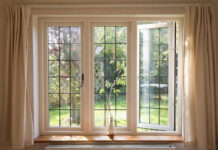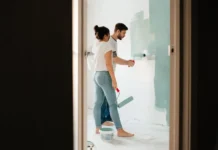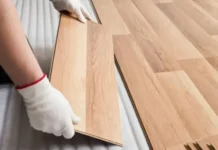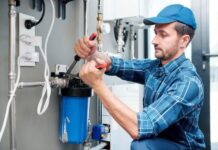Existing-home sales in the US totaled 5.64 million in 2020. That represents a 5.6% increase from the previous year’s sales. In fact, that’s the highest it’s been since 2006.
Of those existing residential properties sold, flipped homes accounted for more than 5%. In the 3rd quarter of 2020, flipped home sales represented 5.1% of all home sales, while it was 6.7% during the 2nd quarter.
Having said all that, you may be wondering what it means to fix and flip houses, including mobile homes. What does the process even entail? Most importantly, how much can you expect to make flipping mobile homes?
We’ll answer all those questions in this guide to mobile house flipping, so be sure to read on!
What Is Fix and Flip in Real Estate?
House flipping involves buying cheap homes and then fixing and selling them at a high price. In most cases, flippers resell properties within 12 months of buying them. It’s common for house flippers to gain more than a 40% return on investment.
How Does Mobile House Flipping Differ?
Mobile house flipping has the same goal: to buy low, renovate, and then sell at a higher price. The chief difference is that it involves manufactured homes, which may or may not come with land. Mobile homes also require registration and licensure with the state motor vehicle agency.
Mobile homes are also far cheaper than standard homes, with an average price of $87,300 in September 2020. As such, flipping mobile houses often have smaller returns in terms of actual amounts.
Why Fix and Flip Mobile Homes Then?
Aside from their affordability, mobile homes often have lower maintenance costs, too. There’s also the added benefit of “mobility” that lets owners move from one place to another as they desire. These are among the top reasons 22 million people in the US now live in manufactured or mobile homes.
All these benefits of mobile homes offer a solution to the affordable housing crisis in the US. They’re also the primary reasons as to why you should consider flipping mobile houses.
Moreover, the low supply of mobile homes makes them highly in demand, so they’re quicker to sell. According to this mobile home flipping course, it’s possible to complete a sale in just two to seven days.
How to Fix and Flip Mobile Houses
The first step on how to fix and flip mobile homes is to check if your state requires dealer licensure. Some states specify how many mobile homes you can buy and sell for a profit within 12 months without a license.
An example is Arizona, wherein you’d need to get licensed if you buy and sell more than two mobile houses per year. In other states, such as California, you need to have a license before you can buy and sell even one mobile house. There are also a few states wherein there’s no cap or limit, which means you can flip mobile homes without a license.
You can call your local DMV or licensing department to confirm licensure requirements. If you need a license, it’s best to acquire it before you start looking for mobile houses to flip.
Once you’re done with licensing concerns, you can now take these steps to flip mobile houses.
Be Diligent in Your Search
Foreclosure.com and Realtytrac.com are two of the top online sources for buying mobile homes. Some of these are properties in pre-foreclosure, while others are already foreclosed. Foreclosed mobile homes are those classified as “real property” rather than “personal property.”
The General Services Administration site also runs auctions for federal assets. While there’s not a lot of them, you can still find trailers up for bids on this government site.
When you search for mobile homes online, be sure to use other keywords, such as “prefab homes.” “Manufactured homes” and “modular homes” can also expand your search results.
The most important thing is to get in touch with the sellers as soon as you can. Again, mobile homes are a hot commodity, so you want to be able to see them in person as soon as they go on sale.
Inspect Each House Thoroughly
Older mobile homes cost less than new ones since they’re prone to more structural issues. Some of the most common include sunk piers, roof and plumbing leaks, and frayed wiring. Damaged skirting, faulty HVAC systems, and ceiling stains are also typical issues.
The goal of inspections is to give you a way to come up with an accurate repair cost estimate. You should factor in the potential repair costs when negotiating the property’s price. The lower you can buy it for, the higher your potential profits can be.
Build a Network of Professionals
Some states require licensed contractors to perform house improvement on mobile homes. In fact, you may need to hire these licensed professionals to get a permit in the first place.
For example, in Michigan, only a licensed plumbing contractor can secure a permit. The same goes for electrical and mechanical permits. Other states have similar requirements, so be sure to check your state’s permit laws.
In any case, a licensed contractor can help you estimate the cost to repair or renovate mobile houses. As a novice in the fixing and flipping industry, you’d need all the help you can get to price your sales right.
A realtor can also help you develop a negotiation strategy for selling mobile homes. Such real estate professionals can also assist in marketing your flipped mobile houses.
A title insurance provider also helps make sure no issues, such as liens, exist on the mobile houses you buy. This is even more important for homes affixed to a piece of land, as these are already a type of real property.
Set a Budget (and Stick to It)
Determine the maximum amount you can afford to shell out for a mobile house. This should include the cost to buy the property and the cost to repair or remodel it. For example, a realistic budget of $45,000 may include $20,000 for the property and $25,000 for repairs.
If you can sell the fixed mobile home with a 40% price markup, the final selling price will be $63,000. That’s still affordable for most buyers, but you’d still end up making $18,000. If you spend too much on acquisition, repairs, or both, your profits can shrink really fast.
Always Start With the Most Worthwhile Improvements
Power washing a mobile home’s exterior is one of the easiest and cheapest ways to boost its curb appeal. On average, it costs a meager $288, but it can be as low as $187, depending on how big the house is. Pressure washing also helps reveal any issues with the mobile home’s exterior walls.
You should consider swapping old windows and doors with energy-efficient replacements. Adding or replacing the home’s belly, roof, skirting, and wall insulation is also a smart move. Other worthy improvements include caulking and sealing air leaks in windows and doors.
According to the Department of Energy, those updates can cut heating fuel use by as much as 31%. This is especially true for mobile homes built before 1976.
Updating the appliances and furniture makes sense if they’re old and energy-inefficient. At the very least, get LED lights, which consume up to 75% less energy than incandescent lights. They can last up to 25 times longer, too, so they’re appealing to home buyers.
You may also be able to install lightweight solar PV systems on mobile homes with a solid roof structure. Ground-level solar panels are best for mobile homes that are rarely on the move.
The least you should for the bathroom is to ensure there are no leaking pipes and fixtures. Pipe insulation is also a plus for buyers, as this helps keep water heating bills at bay. You should also replace old taps, showerheads, and toilets.
Set a Competitive Price for Your Flipped Homes
Once you complete all repairs and updates, calculate all your costs. Then, compare the finished home with similar mobile homes within the area. Doing this will help you figure out how much you can sell the house for.
Your goal is to sell the finished mobile home as soon as you can so that you can move on to your next project. The longer you let your mobile home sit unsold, the less profit you might make. This can happen if there’s a sudden drop in the value of the comparable homes near yours.
Start Making Profits Fixing and Flipping Mobile Houses
There you have it, your ultimate guide on how to fix and flip mobile homes in the US. Just remember that the first step is to confirm dealer licensure requirements. From there, you can start your flipping business with the goal to buy low and sell as high as feasibly so.
Ready for more business, real estate, or investment ideas? Then please feel free to browse our other strategy guides and educational resources!



































































